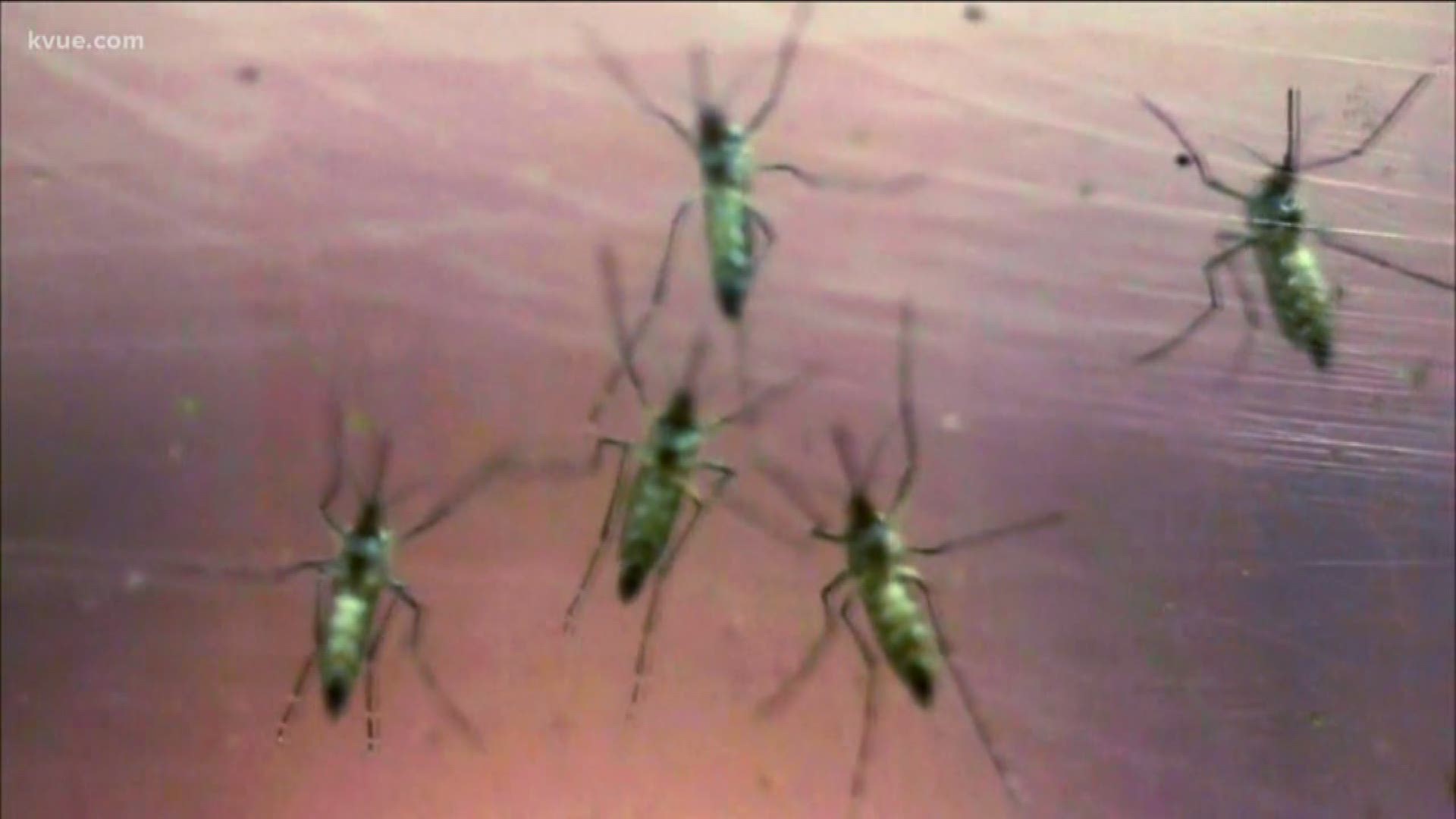AUSTIN, Texas — Austin health officials on Tuesday confirmed the first human case of West Nile virus in Travis County this year.
Officials noted the individual who tested positive was not a traveler, so it can be assumed the virus was contracted locally.
Meanwhile, routine testing performed by Austin Public Health found the first West Nile-positive mosquito pool back in July. A total of six positive mosquito pools have been identified in the ZIP codes of 78759, 78754, 78723, 78721, 78704 and 78744.
According to city leaders, mosquitoes are present in Central Texas year-round but are more active through the months of May to November.
“Warm, wet weather is prolonging the mosquito season and we should take steps to prevent getting mosquito bites when around standing water,” said Austin-Travis County Health Authority Dr. Desmar Walkes.
Most people who become infected with West Nile virus do not experience symptoms, but around 20% may develop a fever and mild, flu-like symptoms, including headache, body aches, a skin rash and swollen lymph glands.
People over the age of 60 are at greater risk of developing more serious symptoms, as well as those with conditions such as cancer, diabetes, hypertension and kidney disease. Organ transplant recipients are also at greater risk.
According to Austin Public Health, when it comes to mosquitoes, it's important to remember the four Ds:
- Dusk through dawn: Although different species of mosquitoes are active at different times of day, the Culex species that spreads West Nile virus are most active between dusk and dawn. Make sure any open windows are screened to prevent mosquitoes from entering the room.
- Dress: Wear light-colored, loose-fitting pants and long sleeves when spending time outside. Mosquito-resistant clothing is also available
- DEET: Apply insect repellent that contains DEET. Read and follow label instructions. Spray both exposed skin and clothing with repellent.
- Drain: Get rid of standing water in your yard and neighborhood. Old tires, flowerpots, clogged rain gutters, birdbaths and wading pools can be breeding sites for mosquitoes.

